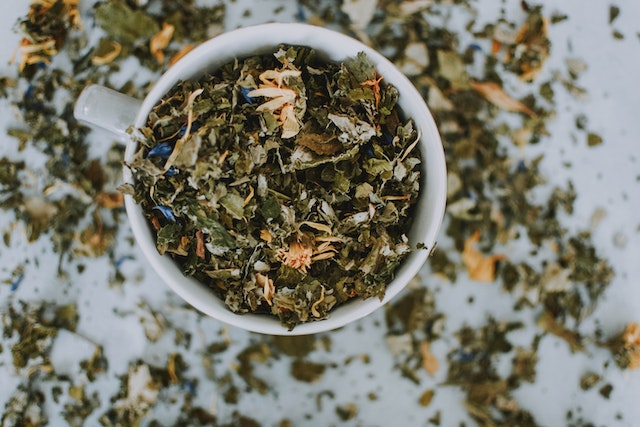- 13 October 2023
- 307
Choosing Herbs for Cooking: Fresh or Dried?

Cooking with herbs adds depth and complexity to your dishes, but the choice between fresh and dried herbs is critical. The form of herbs you use can significantly impact the flavor, aroma, and overall success of your recipes. In this article, we’ll provide guidance on when to opt for fresh or dried herbs in various cooking techniques and recipes, helping you make the most of these flavorful ingredients.
The Versatility of Fresh Herbs
Fresh herbs are known for their vibrant colors, intense aromas, and delicate textures. They are an excellent choice for dishes where their freshness can shine. Here’s when to opt for fresh herbs:
1. Raw Preparations:
Fresh herbs are a must in raw dishes where their bright flavors and visual appeal can take center stage. Use fresh herbs in salads, salsas, and dressings to add a burst of freshness.

2. Garnishes:
When you need a final touch of flavor and visual appeal, garnish your dishes with fresh herbs. A few sprigs of parsley on a potato dish, cilantro on a bowl of soup, or fresh basil on a pasta plate can elevate your meal.
Herb-Forward Dishes:
Certain dishes, such as pesto, chimichurri, or tabbouleh, rely on fresh herbs for their intense aroma and flavor. In these recipes, fresh herbs are essential.
The Strengths of Dried Herbs
Dried herbs offer a concentrated burst of flavor and have a longer shelf life, making them perfect for various cooking techniques. Here’s when to opt for dried herbs:
1. Slow Cooking:
Dried herbs are ideal for dishes with long cooking times, like soups, stews, and braises. Their concentrated flavor infuses gradually into the dish, enhancing the overall taste.
Spice Blends:
Dried herbs are a key component of spice blends like Italian seasoning, herbes de Provence, or curry powder. They offer consistency and the convenience of pre-mixed flavors.
Marinades and Rubs:
When marinating meats or creating rubs for grilling or roasting, dried herbs can infuse their flavor evenly, making them a popular choice.
Balancing Fresh and Dried Herbs
Balancing fresh and dried herbs can provide the best of both worlds, adding depth, complexity, and flavor to your dishes. Here’s how to achieve that balance:
- Fresh for Freshness: Use fresh herbs in dishes where their vibrancy and visual appeal matter most. Think of garnishing a fresh tomato salad with basil leaves or adding chopped chives to a creamy potato dish.
- Dried for Depth: Opt for dried herbs in recipes that involve longer cooking times. Dishes like slow-cooked tomato sauces, hearty stews, and braised meats benefit from the concentrated flavors of dried herbs.
- Year-Round Access: Use dried herbs to bridge the seasonal gaps when fresh herbs from your garden are unavailable. This ensures a consistent supply of flavors regardless of the time of year.
- Combining Both: Don’t be afraid to combine fresh and dried herbs in the same dish. For instance, add dried oregano to a simmering pasta sauce and sprinkle fresh basil on top just before serving for a balance of depth and vibrancy.
Incorporating Herbs in Various Cuisines
Different cuisines have specific preferences for fresh or dried herbs. Here are some examples:
- Mediterranean: Mediterranean cuisine often relies on fresh herbs like basil, oregano, and parsley for their bright and aromatic qualities.
- Italian: Italian cuisine uses both fresh and dried herbs. Fresh basil and parsley are common, while dried oregano and rosemary are popular in tomato sauces and roasts.
- French: French cuisine leans towards dried herbs like thyme, rosemary, and tarragon. Dried herbs are prevalent in classic French dishes.
- Indian: Indian cuisine makes extensive use of dried herbs and spices, creating richly flavored dishes with complex spice blends.
- Thai: Thai cuisine favors fresh herbs like cilantro, Thai basil, and lemongrass, which add a burst of fresh flavor.
Photo by lil artsy: https://www.pexels.com/photo/white-and-brown-ceramic-bowl-1793035/
Growing Your Own Herbs
For the freshest herbs, consider growing your own. Whether you have a garden, a sunny windowsill, or a balcony, cultivating herbs at home is a rewarding experience. It allows you to pick fresh herbs at their peak flavor and nutritional value whenever you need them.
In Conclusion
The choice between fresh and dried herbs should be deliberate, considering the type of cuisine you’re preparing and the specific requirements of your dish. Fresh herbs excel in raw dishes, garnishes, and herb-forward recipes, while dried herbs shine in slow-cooked, braised, or marinated dishes. By striking a balance between the two, you can create flavorful and well-rounded meals that highlight the best of both worlds. Experiment, taste, and let your culinary senses guide you in choosing the right form of herbs for your recipes, adding depth and complexity to your dishes.


